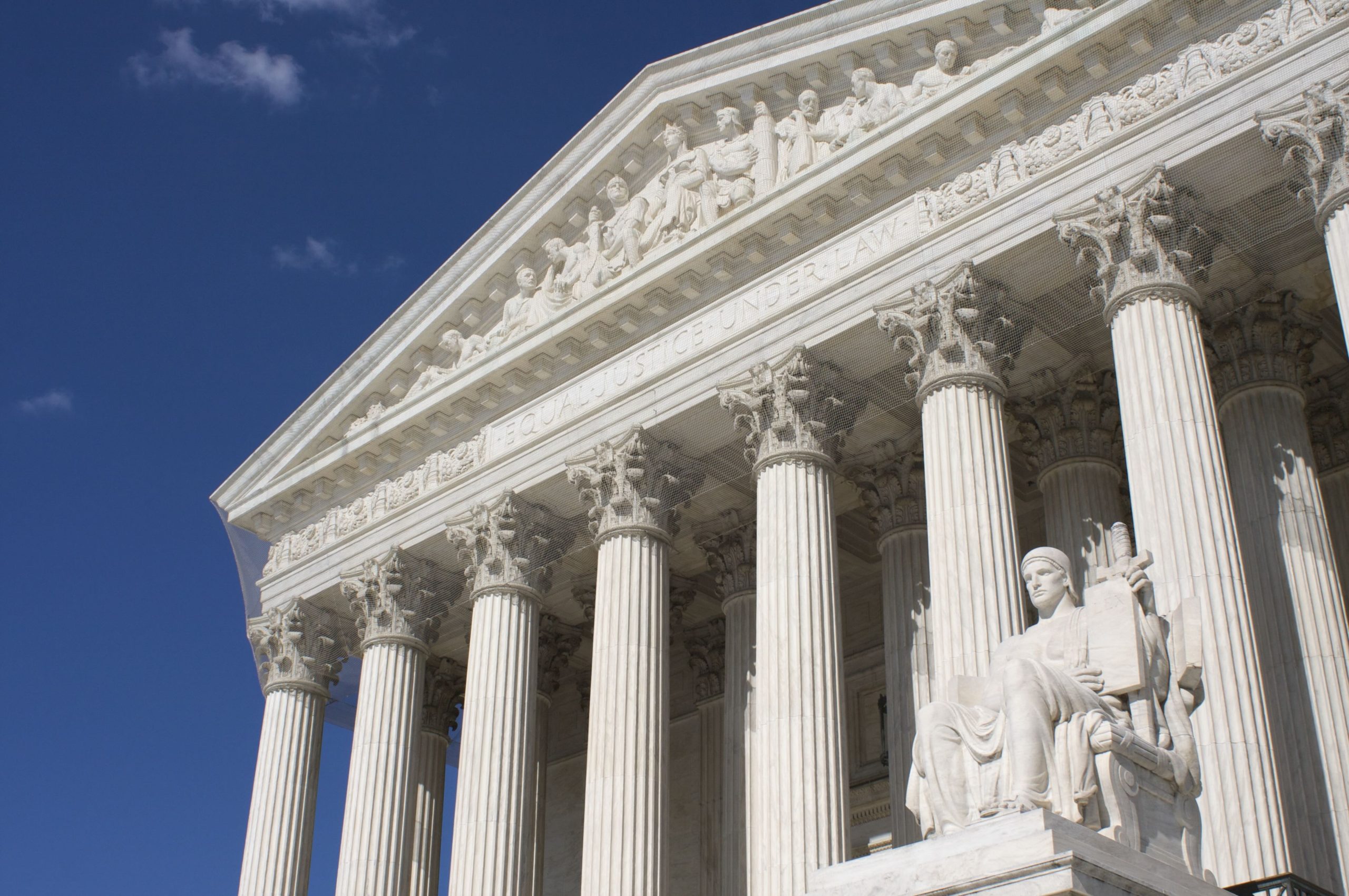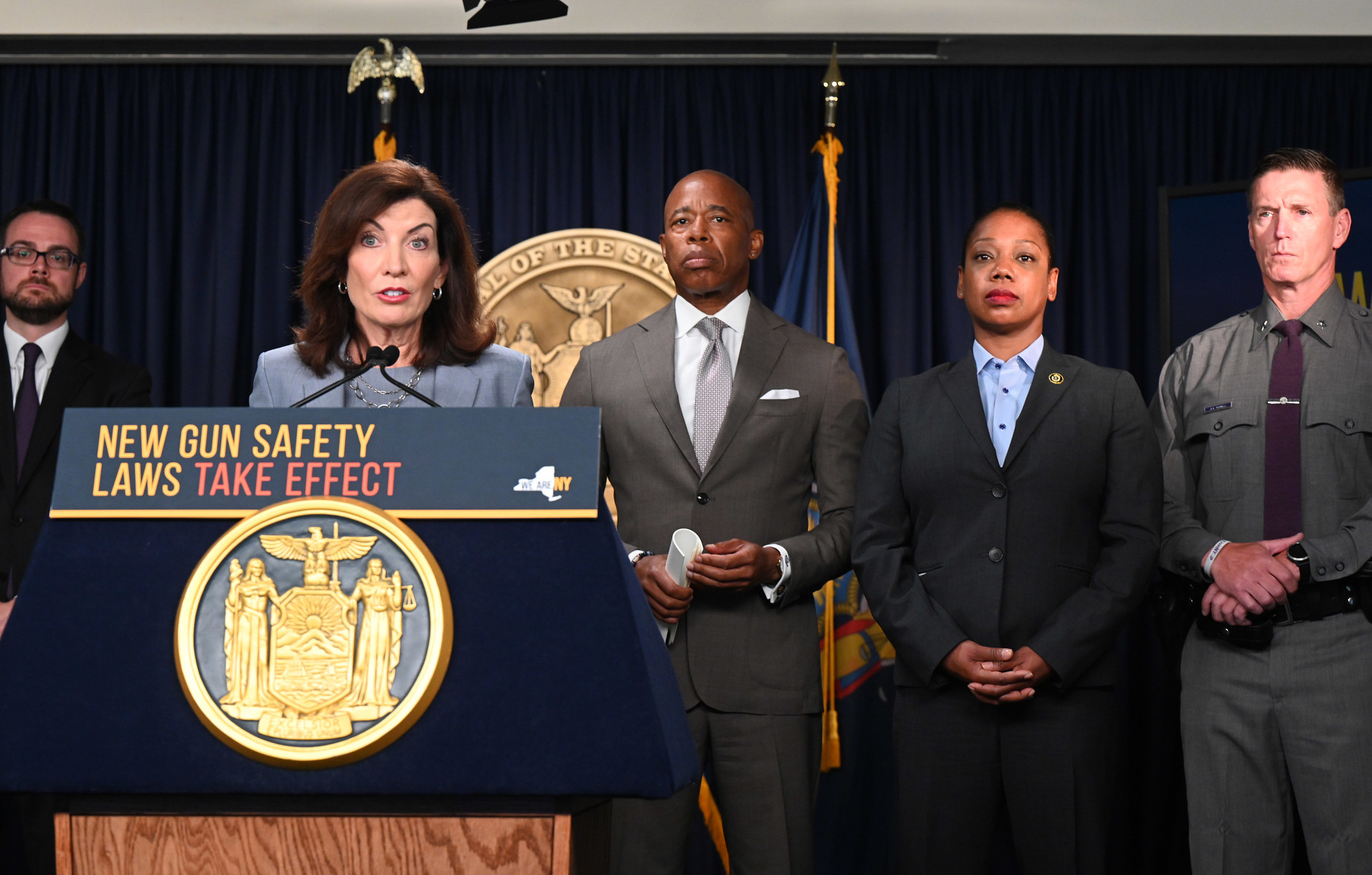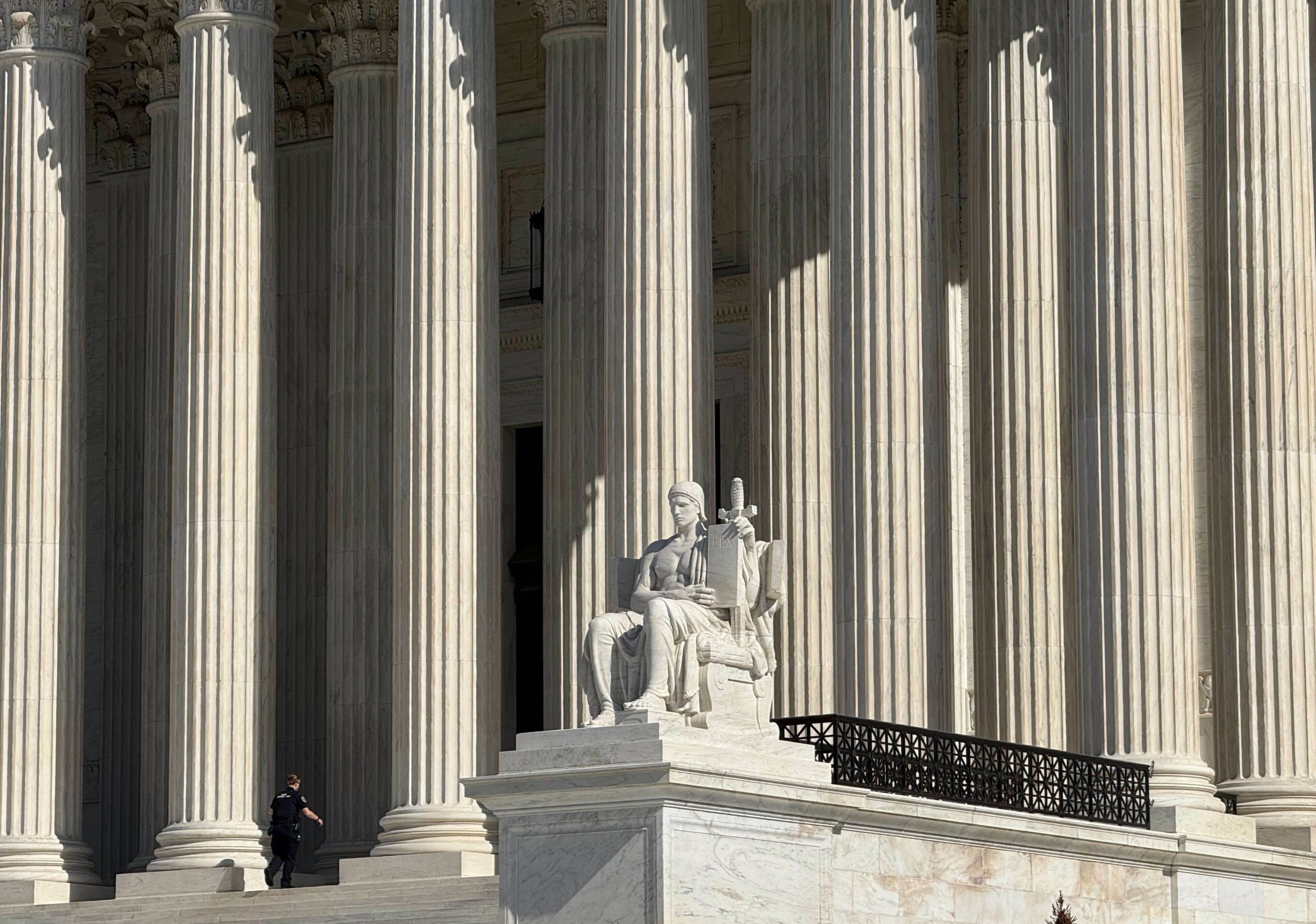Justices debate New York interest requirement on national bank escrow accounts
ARGUMENT ANALYSIS
on Feb 28, 2024
at 6:41 pm
The justices heard oral argument in Cantero v. Bank of America on Tuesday. (J Main via Shutterstock)
The argument Tuesday in Cantero v. Bank of America revealed a bench of justices struggling to reconcile provisions of the National Bank Act that protect national banks with a New York statute requiring all banks (including national banks) to pay interest on the escrow accounts they hold for their mortgage customers. The justices seemed disinclined to agree with what either of the parties had to say, so it is not obvious how they will resolve this one.
Jonathan Taylor appeared for the customers seeking interest on their accounts. Taylor’s basic pitch was that Bank of America is obligated to pay interest because it failed to prove that paying interest would “significantly interfere” with the bank’s activities, in the words of a provision of the Dodd-Frank Act that sets the relevant preemption standard. The problem for the justices, especially Justices Samuel Alito and Elena Kagan, is that deciding whether an interest requirement “significantly interfere[s]” with a bank’s activities seems like a pretty fact-laden inquiry. Alito, for example, commented: “So a district judge … is going to have a trial to determine the effect of this on all national banks operating in New York. And is that going to involve extensive discovery? Would it involve testimony by experts? … It’s at least a heavily factual question.”
Alito and Kagan were particularly concerned about the likelihood of inconsistent findings by different juries if the question is factual. For Alito, “there’s the problem that these cases are going to be decided on an individual record. So suppose these petitioners lose on this record. Would that ban others who have non-interest-bearing accounts with Bank of America from bringing suit and saying we can compile a better record and then you have questions about the same decision, the same issue being decided in different circuits?”
In the same vein, Kagan worried about the answer to the preemption question changing over time or based on geography: “I mean, you could have no significant effect now and then ten years from now you’re in a different economic environment and you could have a significant effect. And does that mean it would be a kind of on/off switch like one day the law applies and the next day, ten years later, it doesn’t?” She added that different parties might present different evidence. “Maybe different states would have the exact same law, but the economic circumstances in those two states would be very different, so it looks as though the federal law preempts one state law and doesn’t preempt the other state law.”
For Kagan, such a shifting process “seems an odd kind of inquiry for a preemption question.”
Having said that, several justices also seemed dissatisfied with the answers they got from Lisa Blatt, representing Bank of America. The basic problem was that the test she proposed seemed to protect banks from paying interest too broadly. Justice Sonia Sotomayor pointed to the “express permission for state consumer laws” in Dodd-Frank and asked Blatt to identify which ones would pass muster.
Even more pointedly, Alito bluntly asked her to explain “why your interpretation doesn’t preempt everything”?
Much of Blatt’s presentation challenged Taylor’s argument that the bank can escape preemption only with a factual showing to justify a finding of “substantial interfere[nce],” but some of the justices pushed back hard on that contention as well. Justice Ketanji Brown Jackson queried: “Don’t you have to say something? It’s your burden … to show this substantially interferes. If your answer is I don’t know what we would show, then I guess you lose.”
And Kagan explored the idea that “there should be a kind of presumption that if the state is doing it for the state banks, it’s not really interfering with bank powers in a way that we should care about.” Though Blatt insisted that her interpretation rested directly on the Supreme Court’s opinion in Barnett Bank v. Nelson (which Congress explicitly incorporated into Dodd-Frank), she did not seem to quell concerns about the breadth of the standard she proposed.
A third thread of the argument suggested a possible narrow middle ground of agreement, presaging a possible opinion that invalidates the particular statute at issue here without offering a lot of more general guidance about other possible state regulations. Justices Brett Kavanaugh and Clarence Thomas, for example, seemed dead set on the invalidity of this statute. Making that point, Kavanaugh early in the argument suggested to Taylor that “a law that interferes with the pricing of the product” is “by definition,” problematic. When Taylor tried to defend the New York statute, Kavanaugh interrupted: “Let me stop you right there. … That sounds like significant interference … It’s almost putting a tax on the bank to sell the product.”
Similarly, when Blatt called it “absurd” that Taylor would “say a state could dictate the interest on something like a savings account,” Thomas interjected: “Well, I agree with you on that.”
To the extent the justices were uncomfortable with district judges around the country assessing preemption on a bank-by-bank, state-by-state basis, another thread of the argument focused on the expert regulator, the Comptroller of the Currency. As it happens, the Office of the Comptroller of the Currency has a decided opinion on this statute – the OCC thinks the statute is preempted, published a regulation to that effect, and filed a brief with the court of appeals to that effect.
Rejecting that guidance, though, the government appeared before the justices supporting the customers. Chief Justice John Roberts and Justice Neil Gorsuch spent a great deal of time exploring that topic during Deputy Solicitor General Malcolm Stewart’s argument for the government. Gorsuch, for example, noted the existing OCC regulation’s inconsistency with the government’s position, and asked whether the OCC would “ever going to get around to doing that which,” in the government’s view, “Dodd-Frank directs it to do.”
Similarly frustrated with the OCC’s absence, Kavanaugh asked Stewart, why, in light of the OCC’s expertise in banking, the Biden administration was “disagreeing with its longstanding position?”
This is not an easy case to read. I find it hard to believe a majority will approve anything like the fact-intensive inquiry that Taylor recommends. But there certainly won’t be a consensus on a broad preemption of consumer protection laws. So one possibility is that there will be a scattering of opinions with three or more different views. Another is a narrow majority condemning this particular law without saying much about exactly why. I wouldn’t expect anything soon!






